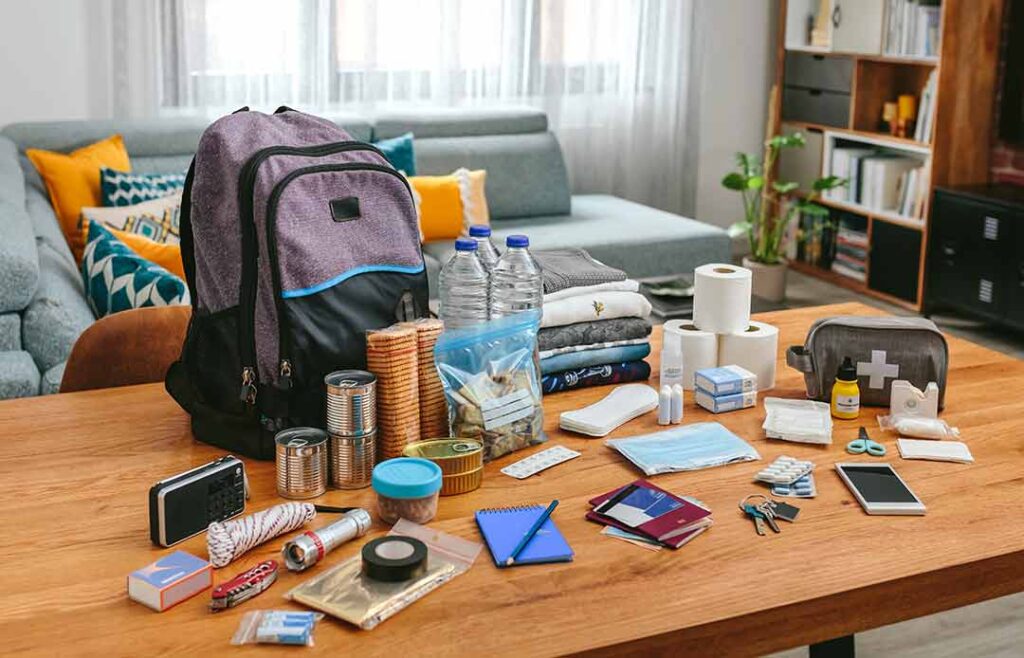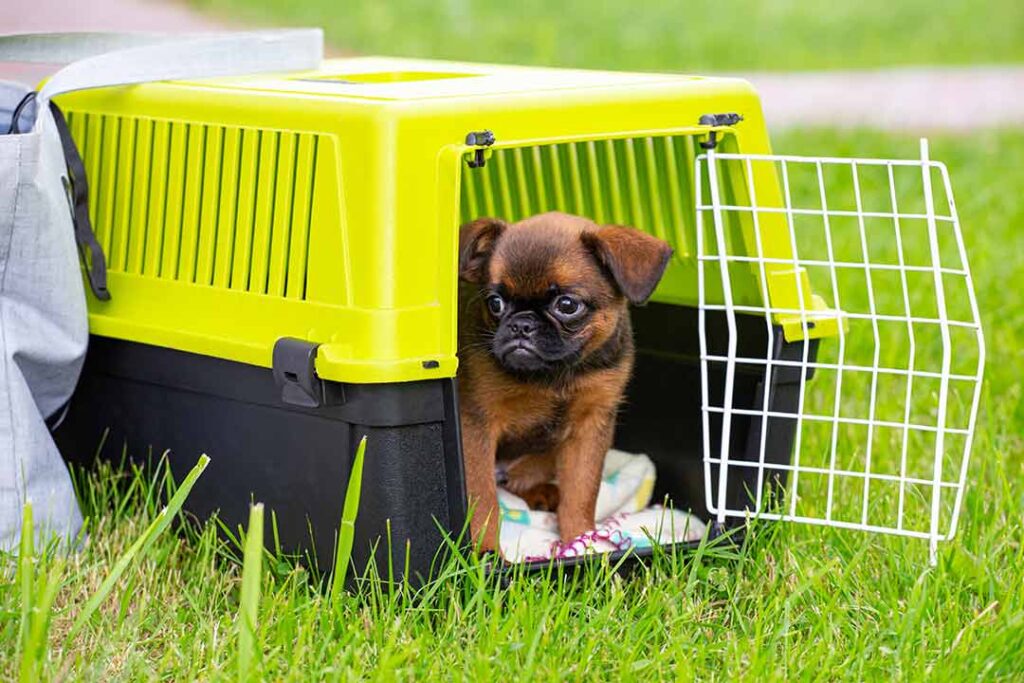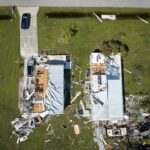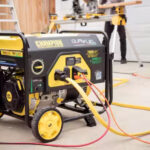Every year, from June to November, Floridians enter a period of heightened awareness known as hurricane season.
Despite the usual sunny days and warm temperatures that come with it, these months raise significant concerns for residents due to hurricanes’ potential destructive power.
Hurricanes bring high winds, flooding and other dangers that can cause significant damage to homes and businesses.
With the right preparation, however, you can minimize the potential for harm to your property and family during hurricane season.
In this guide, we will cover everything you need to know about preparing for hurricane season in Florida: from understanding when it starts and ends, to creating an emergency plan and stocking up on supplies. We’ll also discuss why being prepared is so important—and how it could save lives if a storm hits your area.
Create a Home Inventory
Document your possessions
The first step to creating a home inventory is to document all your possessions. This includes furniture, appliances, electronics, jewelry, artwork, and anything of value. You can do this manually by walking around each room in your house and taking pictures or videos of each item, or you can use a digital inventory tool. There are many free online inventory tools that you can use to make the process easier.
It’s critical to be as detailed as possible when documenting your items. Include make and model numbers, purchase dates, and values. It’s also helpful to note where you purchased the item and any other relevant information.
Include photos or videos
Photos and videos offer a visual record of your possessions and can be incredibly useful when making an insurance claim. Remember to take clear, well-lit photos of each item from different angles. If possible, include a photo of the serial number, as well.
Videos are also an excellent way to document your possessions, especially for large items such as furniture or electronic equipment. You can walk around the room and provide a more comprehensive view of your items. Along with providing visuals of the item, the video can include narration, providing additional details to describe the item.
Store your inventory in a safe place
Once you’ve documented your possessions, it’s essential to store them in a safe place. Keep a copy of your inventory off-site, such as at a trusted family member or friend’s home. Or save it in a cloud-based inventory system. You can also make a hard copy to keep in a safe deposit box at your bank.
The goal is to keep your inventory safe from potential damage from a hurricane or other disasters. If your inventory is lost or damaged, it will be challenging to make an insurance claim, so keeping it in a safe place is crucial.
Update your inventory regularly
Creating a home inventory is not a one-and-done process. As you acquire new possessions, you’ll need to update your inventory. Set a reminder for yourself to take updated photos, add new items and their values regularly.
It’s also essential to review your coverage each year with your insurance agent to make sure your coverage accounts for inflation and any new, valuable items that you’ve accumulated over the year.
Read More about How to Create Your Home Inventory
Read More about

Know Your Insurance Policy
Review your policy:
Start by taking a close look at the details of your policy, including the coverage limits, exclusions, and conditions. Ensure that you are familiar with the specific types of damage that are covered under your policy, and double-check the limitations on coverage. For example, some policies may only cover certain types of damage, such as wind damage, up to a certain dollar amount. By reviewing your policy regularly, you can avoid any surprises in the event of a claim.
Know your policy number and contact information:
Keep your policy number and your insurance company’s contact information handy, should you ever need to file a claim. Be sure to keep your contact information up-to-date with your insurance company, as any changes to your address or phone number could impact your coverage.
Understand what is covered under your policy:
Florida homeowners should be particularly attuned to the risks of hurricane damage, flooding, and mold. Review your policy to ensure that you have sufficient coverage for these risks. For example, many standard policies do not cover flood damage, so you may need to purchase a separate flood insurance policy to adequately protect your home.
Consider purchasing flood insurance:
As mentioned above, flood damage is often not covered by standard homeowner’s insurance policies. Given Florida’s susceptibility to flooding, it is a wise investment to consider purchasing flood insurance. While it can be an additional expense, the peace of mind it brings in the event of a flood can be invaluable.
Review your policy’s deductible:
Your deductible is the amount you agree to pay out-of-pocket before your insurance company begins to pay for a claim. Be sure to review your policy’s deductible, as it can impact the cost of your premiums and the amount of coverage you receive. For example, a higher deductible often lowers your monthly premium but can be a higher out-of-pocket expense if you need to file a claim.
Read more about How To Understand Your FL Homeowners Insurance Policy
Know your Flood Zone
Understand Your Flood Risk
The first important step to take when preparing for potential flooding is to know your flood risk zone. Flood risk maps are created to depict various areas’ chances of flooding. These maps contain information about flood zones, flood elevations, base floodlines, and other important information. The Federal Emergency Management Agency (FEMA) creates these flood maps, which are then used by government agencies and insurance companies to determine flood risk levels in specific areas. To find your flood zone, it is best to check your local government office or FEMA’s website.
Consider Purchasing Flood Insurance
It is crucial to purchase flood insurance if you live in a flood-prone area, no matter if you are in a high-risk or low-risk zone. Hurricane season brings about significant storms, and no one is safe from flooding. Flood insurance covers damages caused by rising water or storm-related flooding, which is not covered by homeowner’s insurance. It is essential to note that flood insurance does not cover personal belongings or the contents of a home. Therefore, separate coverage must be purchased for personal belongings. Be sure to speak with your insurance agent and discuss all necessary coverages.
Be Prepared for Flooding
Another vital step in preparing for flood season is being ready for a potential flood. Develop a flood plan that includes emergency contact information, evacuation routes, and a plan for caring for pets. If an evacuation order is announced, be sure to evacuate immediately to a safe location. Ensure that your emergency kit is ready and contains essential items such as first aid, food and water, and a radio. If you live in an area that experiences frequent flooding, consider elevating your home or temporarily sealing basement windows and doors to prevent flooding.
Read More about How to Identify Your Flood Zone in Florida
Prepare Your Home and Property
Install Hurricane Straps and Clips
Installing hurricane straps and clips is one of the most effective ways of securing your roof to your home’s exterior walls. These straps and clips hold the roof down to the walls, preventing it from being lifted by strong winds. You can purchase hurricane straps and clips at any local hardware store or hire a professional to install them for you. It is always best to call a professional if you are unsure of how to install the straps and clips yourself.
Check Garage Doors and Windows
Garage doors and windows are often the most vulnerable areas of a home during a hurricane. If left unprotected, they can be easily damaged or even blown away by strong winds. Before the hurricane season starts, homeowners should check their garage doors and windows to ensure that they are in good working condition. Install braces on the garage door and invest in reinforced glass windows to prevent potential damages.
Reinforce Doors
Your home’s doors can take a severe beating during a hurricane, and that’s why reinforcing them is essential. One of the best ways to strengthen your doors is to add a bolt in addition to the standard lock. Another option is to install a heavy-duty door that can withstand hurricane-force winds. It’s essential to fortify the doorframe with secure hardware to prevent it from dislodging from the wall.
Check for Leaks and Seal Openings
Check every corner of your home and look for gaps, cracks, and any other openings that can allow water or wind to enter your home. Seal these areas promptly and apply high-quality sealants to prevent leaks. Remember to check the roof for any damaged shingles or other wear to avoid water leaks.
Read more about How to Prepare Your House for Hurricane Season and How to Prepare Your Landscaping for Hurricane Season
Keep Your Home Prepared
Trim Trees and Shrubs Away from Your Home:
One of the simplest ways to prepare your home for a hurricane is by cutting or trimming trees and shrubs around your property. Trees can fall or their limbs can break, causing severe damages to your home, or even worse, injuring a family member. By having these trees removed or trimmed, you can prevent this from happening. Contact local arborists to get the job done quickly and efficiently.
Install Storm Shutters or Buy Storm Panels:
If you live in a hurricane-prone area, having storm shutters or storm panels installed in your home is a must. These protective devices can prevent high winds, flying debris, and rain from damaging your windows and doors. They’re also designed to withstand hurricane-force winds, ensuring your home and family members stay safe during the storm. You can choose from several reliable options, such as accordion, roll-down, or Bahama styles, to find one that suits your budget and preferences.
Inspect Your Roof and Exterior of Your Home:
Inspecting the roof and exterior of your home is an essential part of preparing for hurricane season. Check for any damages, loose shingles, or gaps that could allow water to seep in during the storm. Ensure your roof, gutters, and downspouts are clean and free of debris that may cause flooding or roof collapse. Check for any unsecured objects around the exterior of your home, such as outdoor furniture, grilling equipment, or planters, and keep them indoors or anchored down.
Consider a Generator
Why You Should Consider Buying a Generator:
Power outages are common during and after a hurricane. A generator can help you ensure that you have power during these times. This means that you can keep your lights on, use your fridge and freezer, charge your phone, and even cool down with an AC unit. Not having power can be frustrating, especially during a hurricane when you need to feel safe and secure. So, investing in a generator will give you peace of mind knowing you have power during outages.
Choose the Right Size Generator:
It is important to choose the right size generator for your home. A generator that is too small will not be able to power everything you need, while a generator that is too big will be a waste of money. To determine what size generator you need, you’ll need to calculate the wattage of everything you want to power; then, add up the total wattage and choose a generator that has the capacity to handle that amount. You may also want to consult a professional to ensure that you are making the right choice.
Depending on your particular situation, some common uses may be your refrigerator, air conditioner, and essential lighting. However, suppose you want to power more appliances simultaneously, like a television, washing machine, or even hot water heater—you must seek assistance from an electrician. In general, if it’s just a small portion of electronics and appliances you need, a 3,500-watt generator may be an excellent choice. On the other hand, if you want to power everything, you should look at models from 5,000 to 10,000 watts.
How to Maintain Your Generator:
Like any other piece of equipment, generators need maintenance to work effectively. You should check your generator regularly to ensure that it is running properly. This includes checking the oil, air filter, and spark plugs. It is also a good idea to use high-quality gasoline and to change the oil after the first 20 hours of use, and every 100 hours after that. Make sure to store your generator properly, so that it is ready for use when you need it.
Generator Use and Safety:
It is essential to use your generator safely to avoid any accidents. Always read the manufacturer’s instructions before using your generator, and make sure that it is placed in a well-ventilated area to avoid carbon monoxide poisoning. You may want to invest in a carbon monoxide detector to be extra safe. Keep your generator dry and away from any excess water, and do not use it indoors. It is also vital to turn off all electronics before starting up your generator and then powering them on one at a time after the generator has started up.
Make sure your generator always runs outside and not in enclosed areas because Carbon Monoxide (CO) is odorless and invisible, making it impossible to detect without a carbon monoxide detector. CO poisoning can be fatal, so make sure you place your generator outside and at a safe distance from any windows or doors. Additionally, remember to turn off all electrical appliances and equipment connected to the generator before starting it.
- How to Choose the Right Generator
- How to Calculate How Much Power Your Generator Will Need
- Best Portable Generator Options for Hurricane Preparedness
- How to Use Your Generator Safely During Hurricane Season
- Best Generator Maintenance Practices to Prep for Hurricane Season
Plan for evacuation
Know Your Evacuation Zone
The first step in preparing for a hurricane evacuation is to know your evacuation zone. Florida maps are divided into evacuation zones designated by letters, and these zones are based on the severity of the storm. The evacuation zones are organized from A to F, with A being the most severe and F being the least severe. Residents of an area in Zone A are required to evacuate first, while those in Zone F are the last ones to evacuate. You can check your home’s evacuation zone on the local government’s official website or by contacting their emergency management agency.
Understand Evacuation Orders
The second step is to understand evacuation orders. There are two evacuation orders that government agencies issue – voluntary and mandatory. A voluntary order means that you should leave your home but are not required to. On the other hand, a mandatory order means that you must leave your home immediately. You should plan your evacuation route beforehand to carry out a quick evacuation process if the need arises.
Plan How You Will Evacuate
The third step is to plan how will you evacuate. Will you drive out of the city, take public transportation, or rely on family or friends? It is essential to determine how you will evacuate to a safer location before a hurricane strikes. It is always best to have a couple of different options in case one route or method is blocked. You can use the official Florida evacuation routes map to decide your route and be aware of your city’s evacuation routes to avoid overcrowding in the aftermath of the storm.
Consider Emergency Shelters
The fourth step is to consider emergency shelters if your home is not a safe place to be during a hurricane. Emergency shelters provide protection against storms, and they can have medical staff, food supplies, and other essential services. However, due to the Covid-19 pandemic, you may be required to pack your personal hygiene kit, wear a mask, and adhere strictly to social distancing norms. You can find a list of emergency shelters in your evacuation zone on local government websites.
Always be Prepared
The last step is always to be prepared throughout the hurricane season. Keep all the essential documents handy and store your belongings safely. Have enough food and water supplies for your family for at least three days. If you have pets, ensure to carry the necessary equipment and medication they require during the evacuation.
Stock Up on Emergency Supplies
Stock Up on Non-Perishable Food and Water
One of the most important things to have in preparation for hurricane season is food and water. Stock up on non-perishable food items such as canned goods, granola bars, and peanut butter. Be sure to have enough food for each family member to last at least three days. It’s also crucial to have plenty of water. The general rule of thumb is to have one gallon of water per person per day. You can also purchase water purification tablets or filtration systems for an extra level of protection.
Have a First Aid Kit
During a hurricane, there is always a risk of injury. It is important to have a well-stocked first aid kit to treat minor injuries until medical professionals can be reached. Your first aid kit should include items such as bandages, antibiotic ointment, pain relievers, and any prescription medications that family members may need.
Have a Battery-Powered Radio
During a power outage, communication is key. It is important to have a battery-powered radio to listen to updates and instructions from local authorities. Be sure to have extra batteries for the radio as well.
Have Flashlights and Extra Batteries
Power outages are common during a hurricane, so it’s important to have a reliable source of light. Stock up on flashlights and extra batteries to ensure you have enough light to navigate your home safely. Candles are not recommended as they can be a fire hazard.

Consider an Emergency Kit for Each Family Member
In addition to a general emergency supply kit, it may be beneficial to create an emergency kit for each family member. These kits could include items such as a change of clothes, personal hygiene items, and any necessary medications. Having individual kits will allow each family member to have their own supplies and reduce the need to share items.
Protect important documents
Gather Important Documents
The first step in securing your important documents is to gather them in one place. These may include, but are not limited to, birth certificates, passports, social security cards, property deeds, insurance policies, wills, and financial statements. Once you gather all your important documents, you can then move on to the next step.
Store Them in a Waterproof Container
The second step is to store your important documents in a waterproof container. You can use a plastic bag or a waterproof envelope to place them. Make sure that the container you choose is large enough to hold all your documents and can be sealed tightly. This will help prevent any water damage in case of flooding or heavy rains.
Consider Storing Them in a Safe Deposit Box
If you’re worried about losing your documents, consider storing them in a safe deposit box. This may be located in your bank or another secure location. You’ll need to have the necessary identification and proof of ownership to access your box. However, by storing your important documents in a safe deposit box, you’ll have peace of mind that they’re safe and secure.
Create Digital Copies
In addition to the above steps, we recommend creating digital copies of your important documents. You can use a scanner or a high-quality camera to take pictures or scan your documents. Save these files in a secure cloud-based storage service or an external hard drive. This step can ensure that even if you lose your physical copies, you can still access your documents from anywhere and on any device.
Make a Plan for Pets

Evacuation Plan for Pets
If you are preparing to evacuate due to an upcoming storm, then you need to have a plan in place for your pets too. Don’t leave them behind! If it’s not safe for you, it’s definitely not safe for them. Find an evacuation shelter that will allow you to bring your pets with you. You can search for pet-friendly shelters in your area, or consider reaching out to family members or friends that can house your pets temporarily. Keep your pets’ carriers or leashes close by in case you need to evacuate quickly. Make sure that your pets are wearing identification tags that have your contact information on them.
Stock Up on Essential Supplies
Just like you would stock up on food, water, and other supplies for yourself, you need to do the same for your pets. Have at least a two-week supply of food, water, and any necessary medications for each of your pets. Keep these supplies in a waterproof container, along with any other necessary items such as litter, poop bags, or toys. Make sure your pets have updated vaccinations and copies of their medical records, in case they need to be treated by a veterinarian during or after the storm.
ID and Microchips
In the event that you and your pet are separated, it’s essential to make sure they have some form of ID. Ensure your pet’s ID tags have your latest contact information, and consider microchipping your pet as an added measure for identification. This will increase the chances of your pet finding their way back to you.
Have Cash On-Hand
Power outages may not allow for credit card or digital transactions.
Hurricanes are renowned for causing power outages that can last for hours or even days. During this time, credit card machines, ATMs, and other digital payment options may not be available, rendering them useless. Thus, if your only source of funds is a debit card, you may not be able to access your funds when you need them the most. Therefore, having some cash on hand will ensure that you are always able to purchase what you need or pay for essential services.
ATM’s may be shut down during a hurricane.
In addition to power outages, banks often shut down their ATMs or restrict their use during hurricane season. This can be frustrating for those who depend on ATMs for their cash needs. Having cash on hand during this time will provide you with peace of mind and ensure that you have access to funds should ATM machines be unavailable due to natural disasters or other issues.
Purchase necessary supplies ahead of time.
As the hurricane approaches, and the risk of power outages and flooding increases, homeowners tend to flock to grocery stores and gas stations to buy essential supplies such as food, water, batteries, and gas. Having cash readily available ensures that you can purchase necessary supplies ahead of time, avoiding long lines or shortages. Additionally, many stores may only accept cash at this time, as digital and credit card transactions may not be possible due to power outages.
Consider having several thousand dollars in cash.
While having a few dollars on hand is better than nothing, it is recommended that you have several thousand dollars in cash during hurricane season. This amount, of course, depends on your personal situation, the number of people in your household, and your overall spending needs. If you need an amount to get started with, just aim for $1,000 in cash to have on-hand just in case of an emergency.
For instance, you may need a significant amount of cash if you plan to evacuate your home or move to a hotel or other temporary lodgings. You may also need to hire a contractor to handle damages caused by the hurricane, and for this, you will need cash.
What to Do With an Open Insurance Claim
Keep all necessary information on-hand.
One of the most important things you can do in preparation for hurricane season is to keep all necessary information on-hand. This includes your insurance policy, policy number, and the contact information for your insurance company. It’s also an excellent idea to keep a list of all the possessions in your home with their estimated value. This will help you in case you need to make an insurance claim after a hurricane. By having this information readily available, you’ll be able to quickly and easily communicate with your insurance company and get the help you need.
Stay in touch with your insurance company for updates.
It’s essential to stay in touch with your insurance company for updates during hurricane season. Your insurance company will keep you informed about any changes or updates regarding your policy and claim. It’s also important to review your policy regularly and ensure that you understand all aspects of your coverage. By staying informed, you’ll be better prepared for any potential damage that may occur during hurricane season.
Know your policy limits and coverage.
Make sure you know your policy limits and coverage before the hurricane season starts. This will help you understand what your insurance company will cover in case of damage to your property. Homeowners insurance policies usually cover damage caused by wind, rain, and flooding, but some exclusions may apply. Make sure you understand what your policy covers, and don’t hesitate to ask your insurance company any questions you may have.
Document all damage.
If you experience any damage during a hurricane, make sure to document everything thoroughly. Take photos and videos of all damaged areas and possessions, and make a list of everything that was damaged or destroyed. This will help you communicate with your insurance company and make an accurate claim. It’s also important to make repairs as soon as possible to prevent further damage.
Work with a public adjuster if necessary.
If you have an open insurance claim and are having trouble communicating with your insurance company, consider working with a public adjuster. Public adjusters are licensed professionals who can help you negotiate with your insurance company and get the maximum compensation possible for your claim. They can also help you understand the fine print of your policy and ensure that you’re not being taken advantage of.









